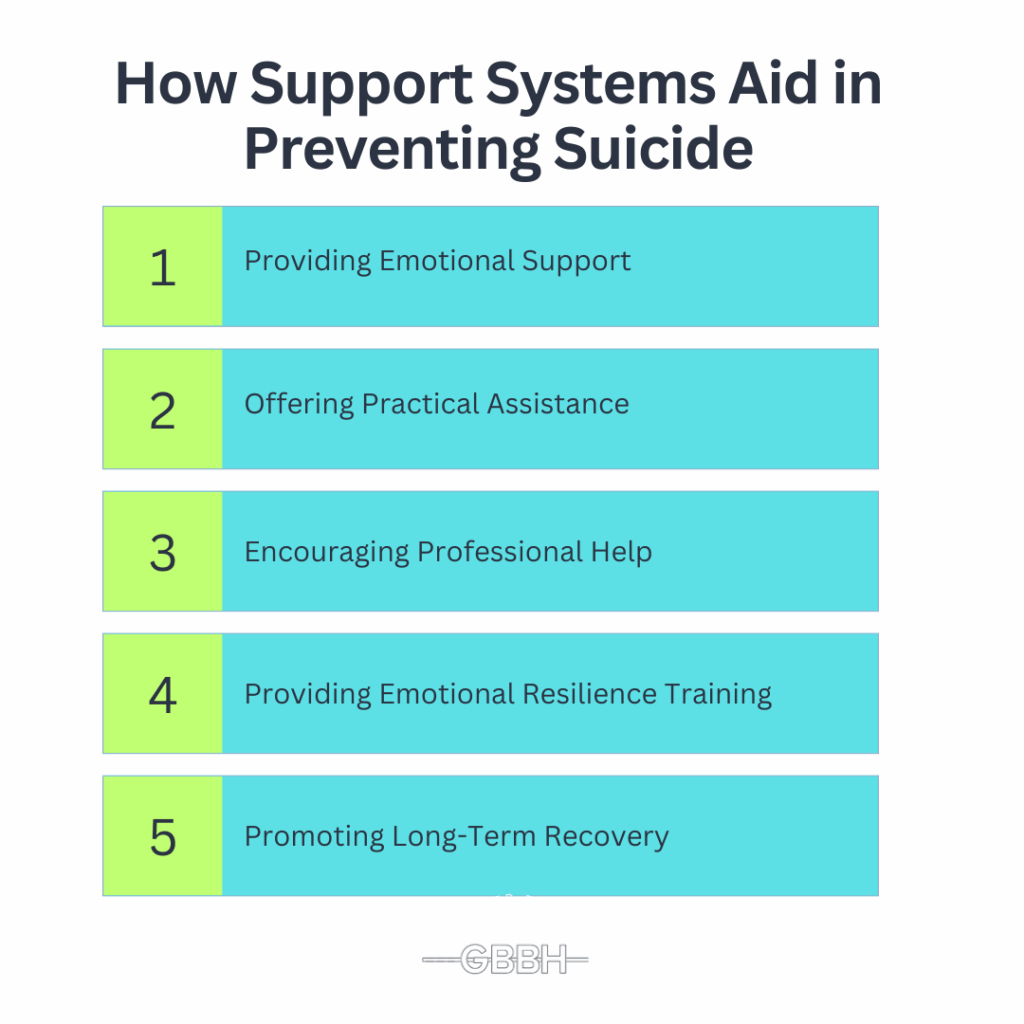The link between mental health, addiction recovery, and suicide prevention is profound. For individuals struggling with addiction, mental health disorders are often a significant factor, with untreated mental health issues potentially leading to devastating consequences, including suicide. Understanding the vital connection between mental health and recovery can guide efforts to not only achieve sobriety but also to prevent suicide.
In this article, we’ll explore how addressing mental health issues in addiction recovery can significantly lower suicide risks, highlighting the importance of comprehensive treatment plans and support systems.
The Overlap Between Mental Health, Addiction, and Suicide
Many people battling addiction also experience co-occurring mental health disorders such as depression, anxiety, PTSD, or bipolar disorder. These conditions can heighten the risk of suicidal thoughts and behaviors, particularly when left untreated. Addiction, which often results from attempts to self-medicate emotional pain, only exacerbates the situation, creating a dangerous cycle of substance abuse and declining mental health.
Suicide prevention efforts must, therefore, be an integral part of addiction recovery plans. Mental Health Programs that focus on both substance use and underlying mental health issues help individuals address the root causes of their struggles, reducing the risk of suicide in the process.
The Role of Comprehensive Mental Health Care in Recovery
One of the most important aspects of suicide prevention in recovery is providing access to a comprehensive Mental Health Treatment Center in Massachusetts or a similar facility. These centers offer specialized care that integrates addiction treatment with mental health support. Combining addiction recovery with mental health therapy ensures that individuals receive treatment for both issues concurrently, addressing the emotional and psychological challenges that may lead to suicidal ideation.
For effective prevention, mental health treatment plans should include evidence-based therapies such as Cognitive-Behavioral Therapy (CBT) and Dialectical Behavior Therapy (DBT). CBT helps individuals recognize and change negative thought patterns that contribute to feelings of hopelessness or despair. DBT, with its focus on emotional regulation and distress tolerance, equips individuals with skills to manage intense emotions without resorting to self-harm or substance use.
How Support Systems Play a Crucial Role in Suicide Prevention
A strong support system is one of the most powerful tools for preventing suicide, particularly during the recovery process. Many who are in recovery face feelings of isolation, guilt, or shame, which can amplify mental health struggles. This is why connecting individuals with support systems is essential. Support systems, including family, friends, and peers in recovery, provide emotional backing and accountability.
Moreover, Mental Health Therapy Programs offer group therapy, where individuals can share their struggles and successes with others who understand their journey. Peer support plays a pivotal role in helping individuals feel less alone, fostering hope and encouraging ongoing recovery. The sense of belonging and acceptance within these groups can be life-saving.
Early Intervention is Key
Recognizing early signs of suicide risk is crucial in preventing tragedy. Mental health professionals in addiction treatment settings are trained to identify these signs, such as withdrawal from social connections, extreme mood swings, or hopelessness. Early intervention, including adjusting treatment plans or increasing therapy frequency, can significantly reduce the likelihood of suicide attempts.
In addiction recovery, relapse can also be a risk factor for suicide, as it often triggers intense feelings of failure and hopelessness. By ensuring ongoing mental health care and providing tools to cope with relapse, treatment centers can help prevent relapse from spiraling into a crisis.
Long-Term Mental Health Care for Sustained Recovery and Prevention
Recovery is an ongoing process that doesn’t end after completing a treatment program. Similarly, suicide prevention requires long-term support. Mental Health Programs should incorporate aftercare planning that includes continued therapy, such as Cognitive-Behavioral Therapy or Dialectical Behavior Therapy, as well as ongoing access to support groups.
A focus on mental health beyond the initial treatment phase ensures that individuals have the coping skills and emotional resilience needed to handle life’s challenges without turning to substance use or harmful behaviors. Regular mental health check-ins, medication management, and access to crisis support services help maintain stability and reduce the risk of suicide as individuals move forward in their recovery journey.
Conclusion
Suicide prevention and addiction recovery are deeply interconnected. Addressing mental health issues in recovery is not only crucial for long-term sobriety but is also essential for preventing suicide. By providing comprehensive care that integrates mental health treatment, addiction recovery, and strong support systems, individuals can achieve lasting recovery and safeguard their well-being.
At a Mental Health Treatment Center in Massachusetts, programs designed to treat both addiction and mental health provide the foundation for sustained recovery. Whether through Mental Health Therapy Programs, Cognitive-Behavioral Therapy, or Dialectical Behavior Therapy, the goal is to equip individuals with the tools they need to rebuild their lives, reduce suicide risks, and thrive in recovery. Call us today at (888)278-0716 to begin healing today.
FAQs: How Suicide Prevention and Recovery Go Hand-in-Hand
How are mental health issues connected to addiction and suicide risk?
Mental health issues, such as depression and anxiety, are often co-occurring with addiction and can increase the risk of suicidal thoughts and behaviors. Individuals may use substances to self-medicate, which can worsen mental health symptoms and create a cycle of substance abuse and emotional distress. Addressing both addiction and mental health issues concurrently is crucial for reducing suicide risk.
What role do mental health treatment centers play in preventing suicide?
Mental health treatment centers provide comprehensive care that addresses both addiction and underlying mental health disorders. By offering integrated treatment plans that include therapies like Cognitive-Behavioral Therapy (CBT) and Dialectical Behavior Therapy (DBT), these centers help individuals manage their mental health, reduce feelings of hopelessness, and lower suicide risk.
How can Cognitive-Behavioral Therapy (CBT) help in preventing suicide during recovery?
Cognitive-Behavioral Therapy (CBT) is effective in preventing suicide by helping individuals identify and change negative thought patterns that contribute to feelings of despair. CBT equips individuals with coping strategies to manage stress and emotions, reducing the likelihood of suicidal thoughts and behaviors.
What is Dialectical Behavior Therapy (DBT), and how does it support suicide prevention?
Dialectical Behavior Therapy (DBT) focuses on teaching skills for emotional regulation, distress tolerance, and interpersonal effectiveness. DBT helps individuals manage intense emotions and reduce self-destructive behaviors, which are critical in preventing suicide, particularly for those with mood disorders and self-harm tendencies.


